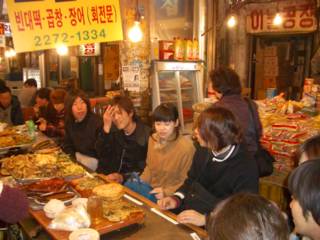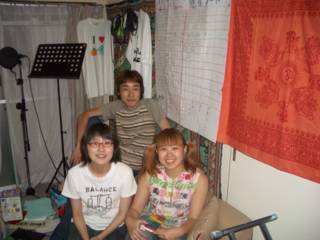
Orange Plankton (minus drummer Tamarou) at their home studio.

I'm playing a minor role in the recording of Japanese piano pop quarter Orange Plankton's 4th album. On Sunday I went to their home studio to help out.
This studio is also the home of Orange Plankton bassist Tsu-ji-, drummer Tamarou and manager Hiroki. It's on the 4th floor of an apartment building, and the musicians only play in the afternoon to avoid pissing off the neighbors. In a quiet residential area in Sakura-jousui in western Tokyo away from urban noise, the apartment is still not an ideal environment for recording: While I was there I could hear the American football club of Nippon University practicing outside (yes, American football. It's fairly popular among college kids), and crows and pigeons on the balcony.
They also have to turn off the air conditioning while they are recording to keep out the machine's sound. That means on hot days, they sweat. Everything is basic, yet they pull it off, making beautiful songs. Are there many things more moving than that? A group of musicians doing part-time jobs so they can afford to create lovely songs in a cramped apartment studio.
These guys, Orange Plankton, are one of my favorite Japanese bands. I was thrilled at the opportunity to sit in on one of their recording sessions, allowing me to see how they make their distinct, enveloping and sometimes swinging sound. They are picky. A long time was spent deciding whether one track of a few bars of music was better than another. For a non-member like me, the difference between the tracks sounded slight, but they decided one track was superior, and stiched those together to create a song. The results shined. It was inspiring.
It took more than six hours just to record the vocal part of the song I came to help out with. There are 12 songs planned for the new album -- this is all they'd been doing for weeks. This was hard work, but it wasn't difficult to understand the perfectionism that drove them. Once the album is pressed, there is no turning back, the sound is permanent. That album will be Orange Plankton for people who listen to only that album.
The album is due out in the middle of August. I'll tell you more about how I was involved in it when it comes out.
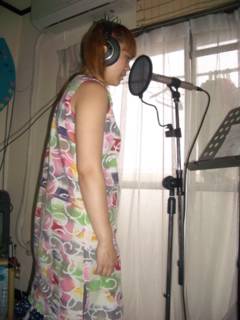
Yumi sings at recording session.

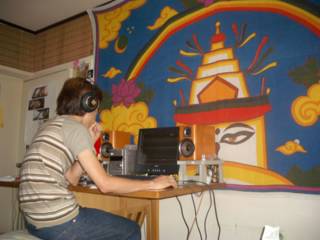
Bassist Tsu-ji- recording.

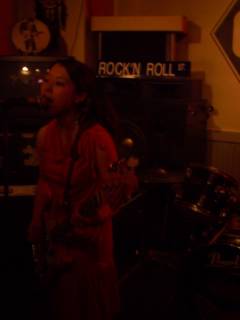
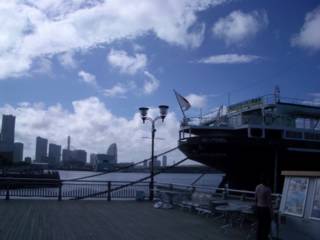
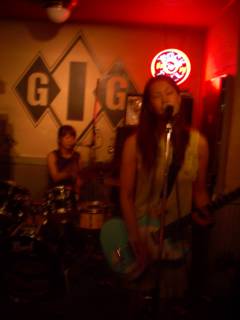

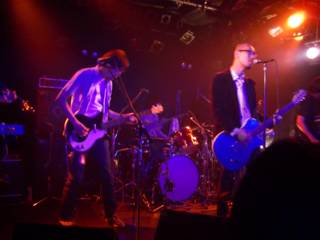
%20012.jpg)
%20018.jpg)
%20019.jpg)


